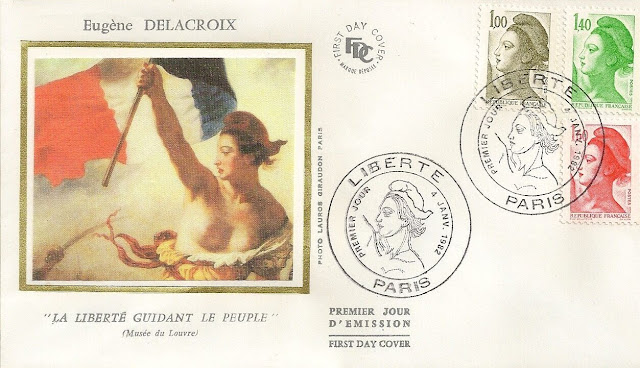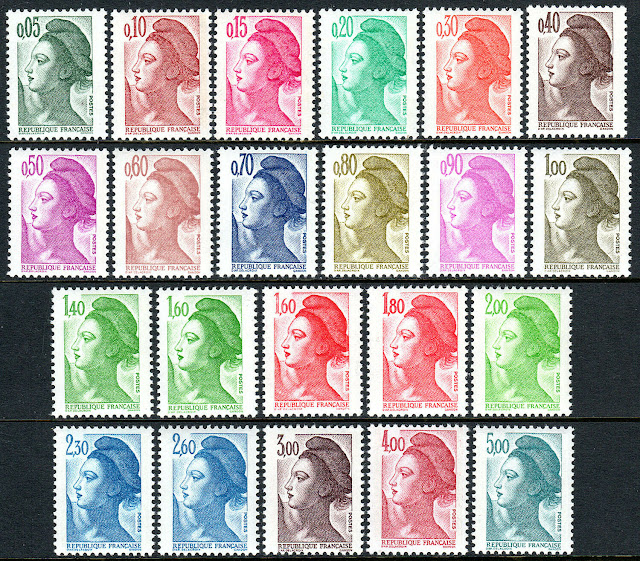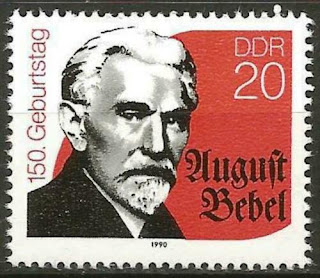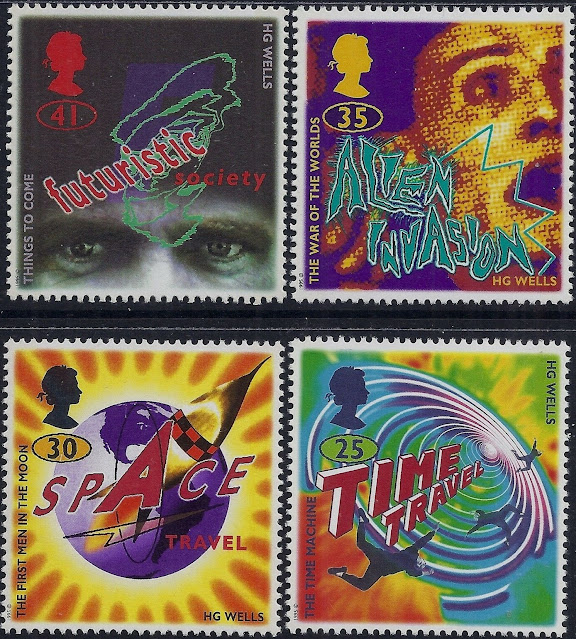Here are some events that happened on August 13th. It could be an event or a person that died or was born on that day
1863 Died: Eugène Delacroix, French painter and lithographer (b. 1798)
Ferdinand Victor Eugène Delacroix (26 April 1798 – 13 August 1863) was a French Romantic artist regarded from the outset of his career as the leader of the French Romantic school.
As a painter and muralist, Delacroix's use of expressive brushstrokes and his study of the optical effects of colour profoundly shaped the work of the Impressionists, while his passion for the exotic inspired the artists of the Symbolist movement. A fine lithographer, Delacroix illustrated various works of William Shakespeare, the Scottish author Walter Scott and the German author Johann Wolfgang von Goethe.
In contrast to the Neoclassical perfectionism of his chief rival Ingres, Delacroix took for his inspiration the art of Rubens and painters of the Venetian Renaissance, with an attendant emphasis on colour and movement rather than clarity of outline and carefully modelled form. Dramatic and romantic content characterized the central themes of his maturity, and led him not to the classical models of Greek and Roman art, but to travel in North Africa, in search of the exotic. Friend and spiritual heir to Théodore Géricault, Delacroix was also inspired by Lord Byron, with whom he shared a strong identification with the "forces of the sublime", of nature in often violent action.
However, Delacroix was given to neither sentimentality nor bombast, and his Romanticism was that of an individualist. In the words of Baudelaire, "Delacroix was passionately in love with passion, but coldly determined to express passion as clearly as possible." Together with Ingres, Delacroix is considered one of the last old Masters of painting, and one of the few who was ever photographed.
Stamps from France depicting Delacroix's paintings or stamps depicting liberty based on Delacroix's painting Liberty Leading the People
1899 Born: Alfred Hitchcock, English-American director and producer (d. 1980)
Sir Alfred Joseph Hitchcock (13 August 1899 – 29 April 1980) was an English film director and producer. He is one of the most influential and extensively studied filmmakers in the history of cinema. Known as the "Master of Suspense", he directed over 50 feature films in a career spanning six decades, becoming as well known as any of his actors thanks to his many interviews, his cameo roles in most of his films, and his hosting and producing of the television anthology Alfred Hitchcock Presents (1955–1965). His films garnered a total of 46 Oscar nominations and 6 wins.
Born in Leytonstone, London, Hitchcock entered the film industry in 1919 as a title card designer after training as a technical clerk and copy writer for a telegraph-cable company. He made his directorial debut with the British-German silent film The Pleasure Garden (1925). His first successful film, The Lodger: A Story of the London Fog (1927), helped to shape the thriller genre, while his 1929 film, Blackmail, was the first British "talkie". Two of his 1930s thrillers, The 39 Steps (1935) and The Lady Vanishes (1938), are ranked among the greatest British films of the 20th century.
By 1939, Hitchcock was a filmmaker of international importance, and film producer David O. Selznick persuaded him to move to Hollywood. A string of successful films followed, including Rebecca (1940), Foreign Correspondent (1940), Suspicion (1941), Shadow of a Doubt (1943), and Notorious (1946). Rebecca won the Academy Award for Best Picture, although Hitchcock himself was only nominated as Best Director; he was also nominated for Lifeboat (1944) and Spellbound (1945), although he never won the Best Director Academy Award.
The "Hitchcockian" style includes the use of camera movement to mimic a person's gaze, thereby turning viewers into voyeurs, and framing shots to maximise anxiety and fear. The film critic Robin Wood wrote that the meaning of a Hitchcock film "is there in the method, in the progression from shot to shot. A Hitchcock film is an organism, with the whole implied in every detail and every detail related to the whole."
After a brief lull of commercial success in the late 1940s, Hitchcock returned to form with Strangers on a Train (1951) and Dial M For Murder (1954). By 1960 Hitchcock had directed four films often ranked among the greatest of all time: Rear Window (1954), Vertigo (1958), North by Northwest (1959), and Psycho (1960), the first and last of these garnering him Best Director nominations. In 2012, Vertigo replaced Orson Welles's Citizen Kane (1941) as the British Film Institute's greatest film ever made based on its world-wide poll of hundreds of film critics. By 2018 eight of his films had been selected for preservation in the United States National Film Registry, including his personal favourite, Shadow of a Doubt (1943). He received the BAFTA Fellowship in 1971, the AFI Life Achievement Award in 1979 and was knighted in December that year, four months before he died.
US sheet depicting Hitchcock
1913 Died: August Bebel, German theorist and politician (b. 1840)
Ferdinand August Bebel (22 February 1840 – 13 August 1913) was a German socialist politician, writer, and orator. He is best remembered as one of the founders of the Social Democratic Workers' Party of Germany (SDAP) in 1869, which in 1875 merged with the General German Workers' Association into the Socialist Workers' Party of Germany (SAPD). During the repression under the terms of the Anti-Socialist Laws, Bebel became the leading figure of the social democratic movement in Germany and from 1892 until his death served as chairman of the Social Democratic Party of Germany.
Stamps from Germany and East Germany depicting Heinrich Hertz
1946 Died: H. G. Wells, English novelist, historian, and critic (b. 1866)
Herbert George Wells (21 September 1866 – 13 August 1946) was an English writer. Prolific in many genres, he wrote dozens of novels, short stories, and works of social commentary, history, satire, biography and autobiography. His work also included two books on recreational war games. Wells is now best remembered for his science fiction novels and is often called the "father of science fiction", along with Jules Verne and the publisher Hugo Gernsback.
During his own lifetime, however, he was most prominent as a forward-looking, even prophetic social critic who devoted his literary talents to the development of a progressive vision on a global scale. A futurist, he wrote a number of utopian works and foresaw the advent of aircraft, tanks, space travel, nuclear weapons, satellite television and something resembling the World Wide Web. His science fiction imagined time travel, alien invasion, invisibility, and biological engineering. Brian Aldiss referred to Wells as the "Shakespeare of science fiction". Wells rendered his works convincing by instilling commonplace detail alongside a single extraordinary assumption – dubbed “Wells's law” – leading Joseph Conrad to hail him in 1898 as "O Realist of the Fantastic!". His most notable science fiction works include The Time Machine (1895), The Island of Doctor Moreau (1896), The Invisible Man (1897), The War of the Worlds (1898) and the military science fiction The War in the Air (1907). Wells was nominated for the Nobel Prize in Literature four times.
Wells's earliest specialized training was in biology, and his thinking on ethical matters took place in a specifically and fundamentally Darwinian context. He was also from an early date an outspoken socialist, often (but not always, as at the beginning of the First World War) sympathizing with pacifist views. His later works became increasingly political and didactic, and he wrote little science fiction, while he sometimes indicated on official documents that his profession was that of journalist. Novels such as Kipps and The History of Mr Polly, which describe lower-middle-class life, led to the suggestion that he was a worthy successor to Charles Dickens, but Wells described a range of social strata and even attempted, in Tono-Bungay (1909), a diagnosis of English society as a whole. Wells was a diabetic and co-founded the charity The Diabetic Association (known today as Diabetes UK) in 1934.
Set of stamps issued by Great Britain depicting H. G. Wells works









No comments:
Post a Comment